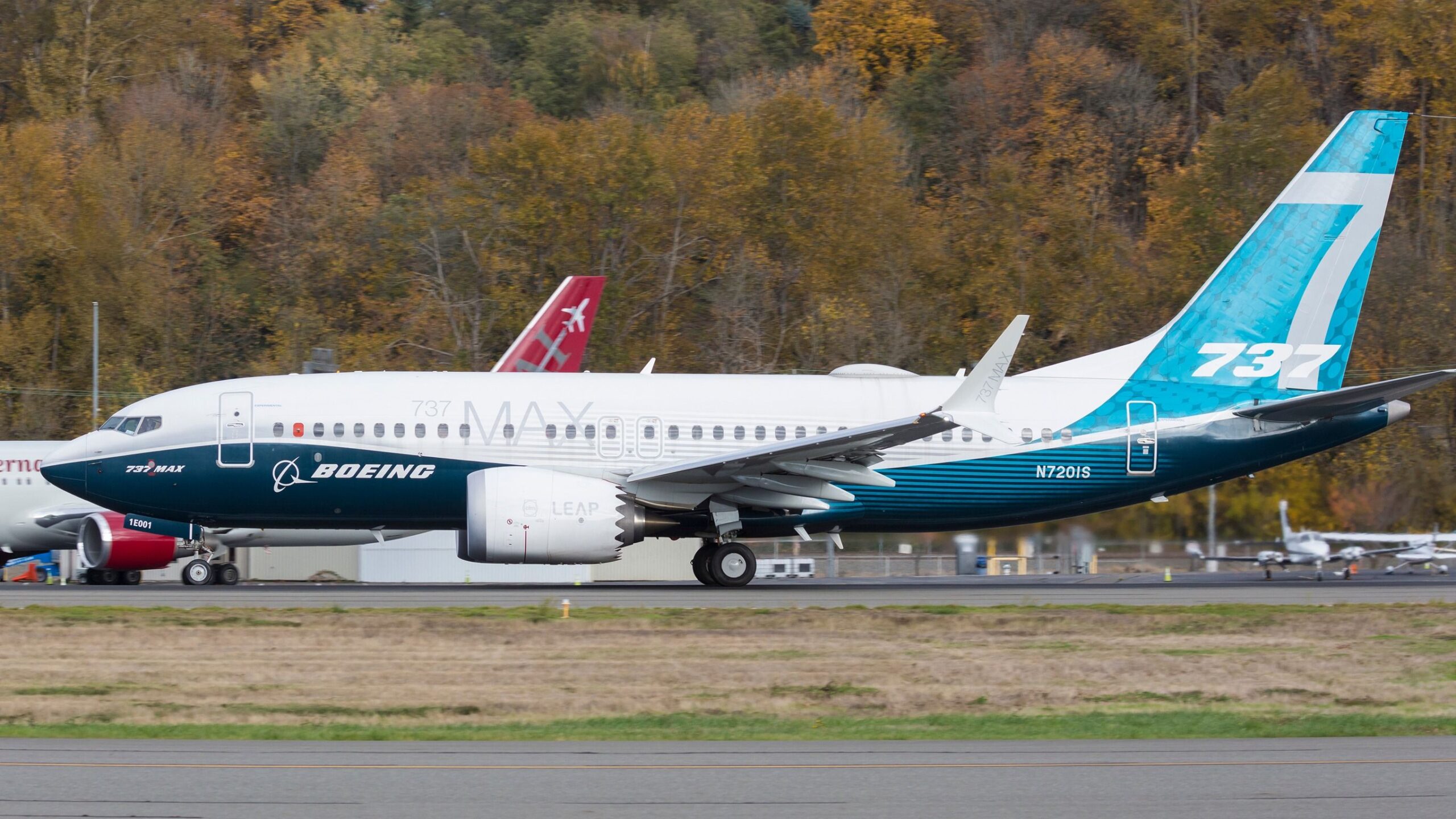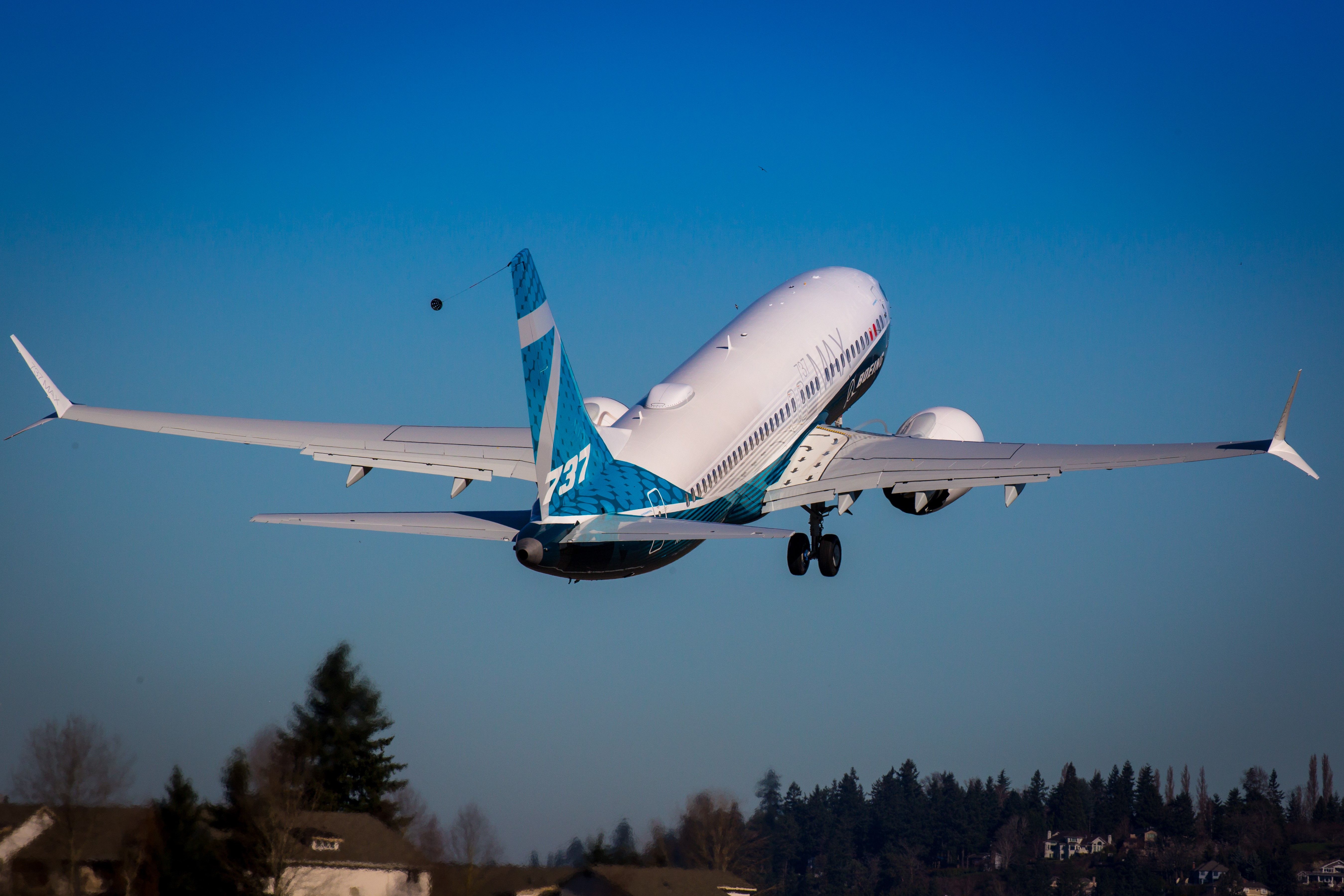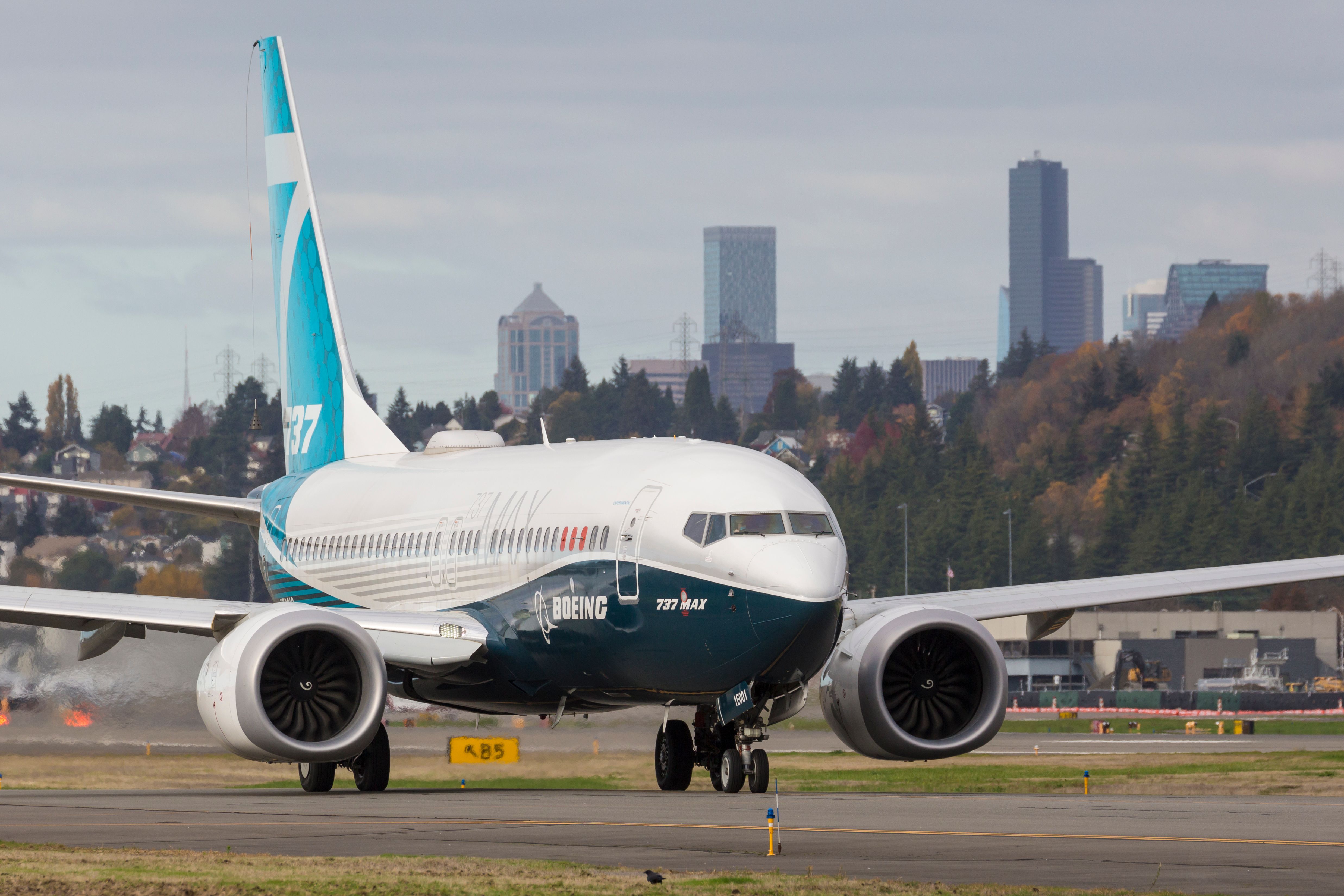Summary
- Boeing has finalized designs to address the engine anti-ice issues delaying certification of the 737 MAX 7.
- Concerns about overheating and potential engine failure have prompted necessary design fixes.
- Southwest Airlines and other carriers must wait for the MAX 7 certification before receiving their orders.
American aircraft manufacturer Boeing has advised that the planemaker has now settled on final designs to address the engine’s anti-ice system, which has caused significant delays in the Boeing 737 MAX 7 certification. The latest design fix is suggested to provide a pathway to certification by next year.
The current issue with the anti-ice system poses concerns about overheating and causing potential engine failure. In a report to Reuters, an English newsagency, Stephanie Pope, a member of Boeing’s Executive Council, shared: “We’re progressing on the engineering.”
Photo: Boeing
When questioned if the variant will conduct flight tests later this year, Pope did not provide certainty but alluded that she expects resumption of flight tests to commence later this year, with an ultimate fix by mid-2025.
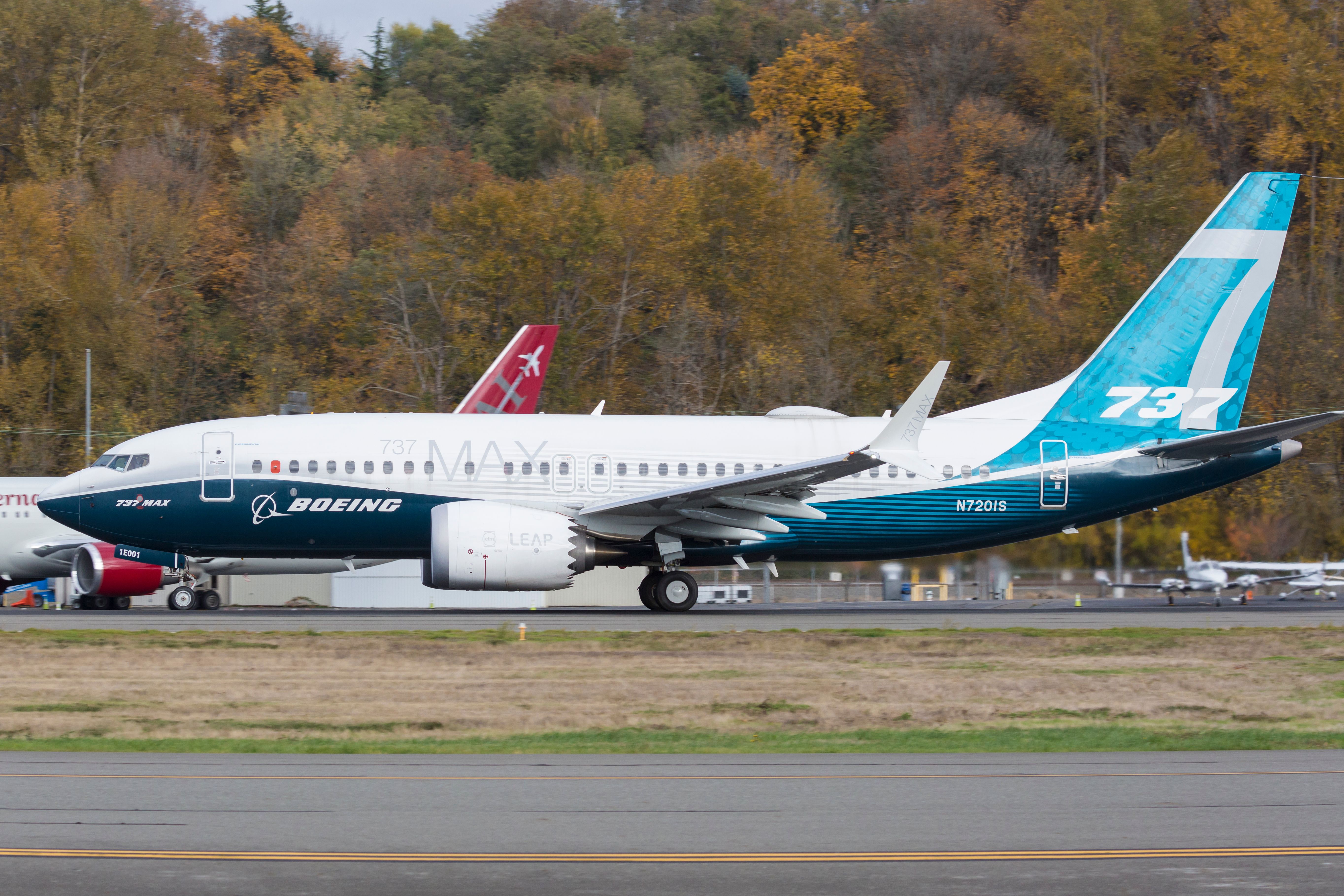
Related
Boeing Advances On Fix For Anti-Icing Issue Delaying 737 MAX 7 & MAX 10 Certification
The FAA initially addressed the Boeing 737 MAX engine anti-ice (EAI) system’s flaws with an airworthiness directive (AD) in August 2023.
Continued scrutiny at Boeing
In recent months, the Seattle-based aircraft manufacturer has faced severe scrutiny for its safety record following the mid-air blowout of a cabin penal onboard an Alaska Airlines MAX 9 flight on departure from Portland (PDX), Oregon. In January this year, the manufacturer withdrew requests with the Federal Aviation Administration (FAA), as it seemed an exemption from a safety standard for the MAX 7, pushing its potential certification until next year.
Tammy Duckworth, an Illinois Democratic senator, earlier this year urged Boeing to abandon its exemption request, noting that the current issue could:
“Cause the engine nacelle to break apart and fall off. This could generate fuselage-penetrating debris, which could endanger passengers in window seats behind the wing.”
The Federal Aviation Administration continued to decline any timetable for the approval of the certification. However, it would thoroughly review any design adjustments Boeing submits.
Photo: BlueBarronPhoto | Shutterstock
For Boeing, the manufacturer has reiterated that there have been no further safety incidents for the MAX 8 or 9 variants currently in service as a result of overheating in the engine inlet, and the planemaker issued additional guidance to airlines in 2023 to follow precise procedures when using the aircraft engine anti-ice system. The Federal Aviation Administration further emphasized this in August 2023 by mandating the existing procedure to turn off the engine anti-ice system when no longer required.
Southwest patiently waiting
Dallas-based Southwest Airlines is the world’s largest low-cost carrier, with 300 on order. The airline had hoped to take delivery of aircraft this year, but it will have to wait a little longer. Canadian carrier Westjet is another North American carrier with its expansion plans on hold, as it also awaits 30 of the aircraft. Europe’s Luxair will become the launch customer for MAX 7 once certified, with four of the aircraft on order.
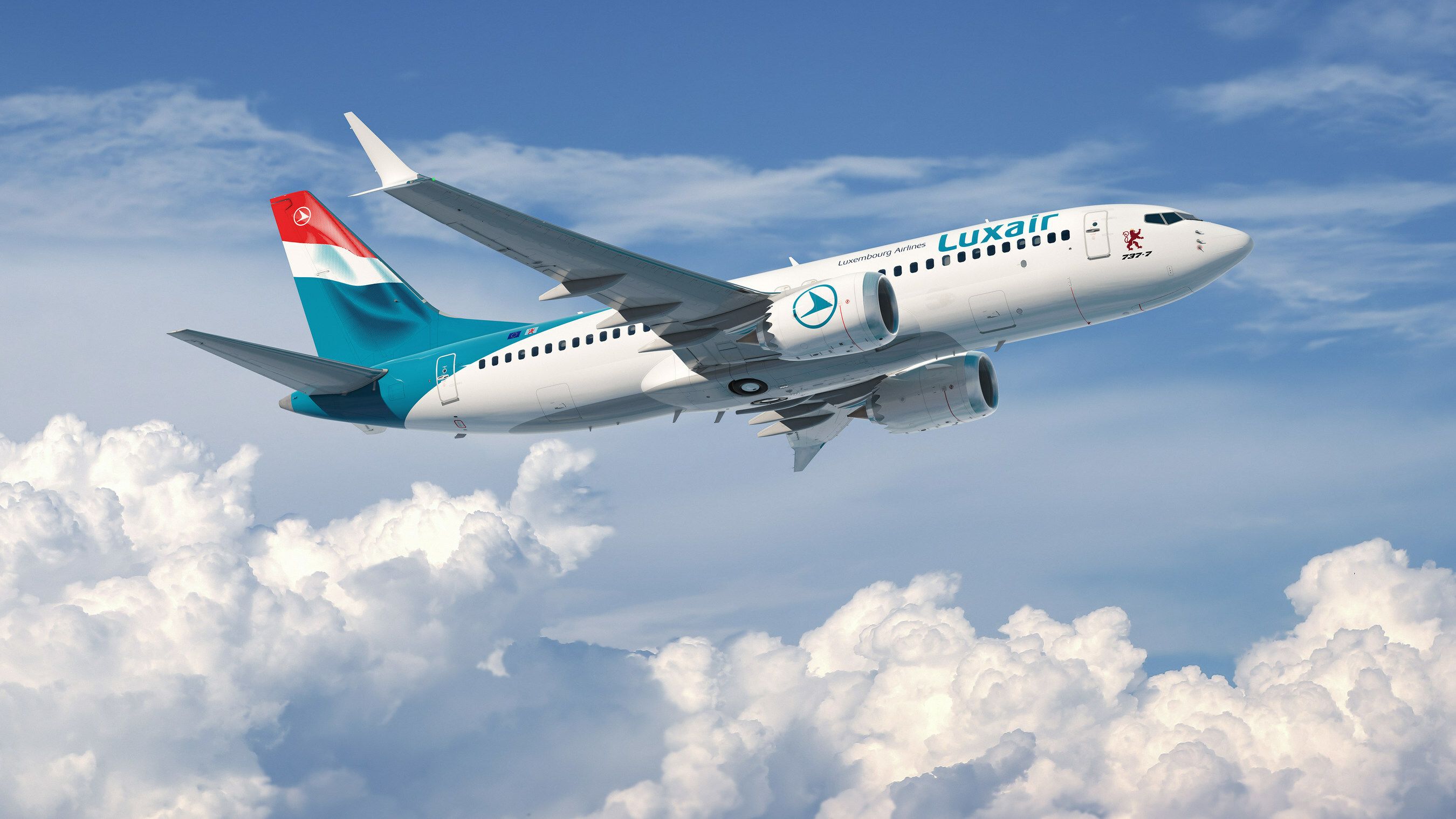
Related
Luxair To Be Launch Customer Of 737 MAX 7 In Europe With Boeing Airshow Order
The national carrier of Luxembourg has orderd four of the yet-to-be certified aircraft.

